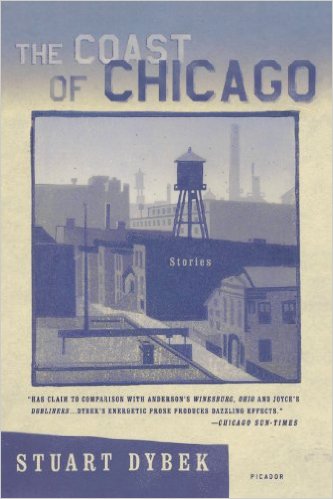|
I recently read an article from The Nation about individuals and climate change, that brought up a very interesting perspective on making a large change. The article is entitled “Climate Change is a Crisis We Can Only Solve Together” by Naomi Klein from June 17 of this year, and can be read in full here. Below is the portion that had the most impact on me. “A story: When I was 26, I went to Indonesia and the Philippines to do research for my first book, No Logo. I had a simple goal: to meet the workers making the clothes and electronics that my friends and I purchased. And I did. I spent evenings on concrete floors in squalid dorm rooms where teenage girls—sweet and giggly—spent their scarce nonworking hours. Eight or even 10 to a room. They told me stories about not being able to leave their machines to pee. About bosses who hit. About not having enough money to buy dried fish to go with their rice. I found the article interesting because it brought up a very valid argument; in Western society, we are taught to be individuals who have power and have voices that can be heard. But do we really have as much power as we think?
Take cheap clothing for example. Companies like H&M and Forever 21 use sweatshops and factories in Asia and Africa to make their clothes. The workers are badly exploited, and paid very little for their goods, which is why we are allowed to pay such low prices for the clothing in the U.S. and Europe. Many people are against the treatment of the workers, and boycott buying clothes from the companies. But has it made a difference? Have the companies changed? No. Because one individual can’t make a change so large on their own. Klein touches upon this when she talks about how the powerless workers in these countries know they’re powerless, and have to come together to push for changes. We rarely see this in the U.S. except over very controversial issues. Americans are rarely up-in-arms about the exploitation of these workers, although they may pretend they are. Klein’s perspective is definitely something to think about. We perceive ourselves to have so much power over our choices and the world around us, but do we really have this power? Is boycotting H&M going to solve anything? Is turning the light off when you leave your room going to save a substantial amount of electricity? Is shaving two minutes off your shower time going to save the water experts claim it will? Especially in America, we are told that our actions can lead to change, and in some cases this is true. But I believe that change must happen above the consumer’s head too. Klein mentions the importance of grassroots organizations, but they can only go so far. Once you have people organized, how is the change going to happen? For the most part, we don’t make the rules. We don’t set the prices, or control the market. What change can we make aside from pressuring corporations? And that might be the only power we have; threatening the corporations and political system that tells us we have all of these powers, because they’re the ones who make the changes. In the end, it’s the corporations who hold all the cards, and it’s a very strategic tactic they use to play us as they do, making us believe we are the ones in control. So no, you boycotting Forever 21 is not going to send the company into a crippling economic depression that will force them to change their policies. If you really do feel passionately about the clothing industry, as Klein writes about in her book, you have to be the one to organize other people, lots and lots of other people, to come together and challenge these companies. And this can be successful when there are a lot of different people involved; customers, employees, and management alike. An issue that hit home for me were the Market Basket strikes of 2014 (which you can read about here if you’re unfamiliar with it). The family-run business was going to be handed over from one Arthur [T.] to the next, Arthur S. Unfortunately, Arthur S. was going to raise prices and make a lot of staff and management reductions, which a lot of people disagreed with. So what happened next? Employees and management worked with vendors to organize rallies and boycotts against the stores, urging customers to shop at Hannaford’s or another grocer until the company was returned to Arthur T. I remember going into Market Basket on one of the first weeks of the boycott, before we knew what was happening. The store had virtually no employees, the managers were boycotting, and the aisles were scarce of vegetables and meats. Employees stood outside of their stores for a little over two months while the “custody” battle for the Market Basket raged on. No one shopped at the stores. No deliveries were made. It was a coherent act of individualism and teamwork that eventually allowed the board to put Arthur T. back in power. That is our power; persuasion. When we work together, we can make changes. I saw it happen with Market Basket, and I know it can happen again. I’m not saying don’t bother supporting fair trade, or continue shopping at those fast fashion stores, but make your voice heard. Attract more people with similar opinions, and get organized. Arrange for large-scale boycotts, talk to vendors and distribution employees. Get as many people on your side and working for the cause as you can, because it all comes down to numbers. The Market Basket strikes got the numbers they needed to see a change, and you can too if you try hard enough. Can individuals really make a change? On their own, no. But together, yes. Just some food for thought. You can purchase Klein's books here to learn more.
0 Comments
Recently, for my fiction class, I read a few selected short stories from Stuart Dybek's The Coast of Chicago: Stories. Obviously in an anthology of short stories, some will resonate with you and some will not. Pet Milk and Nighthawks both really resonated with me, and I'd highly suggest them. A few of the others, like Blight and Chopin in Winter, were still technically sound but stood out less to me. You can purchase it here from Amazon for a good read.
|
What we're reading Archives
November 2019
Categories |


 RSS Feed
RSS Feed
